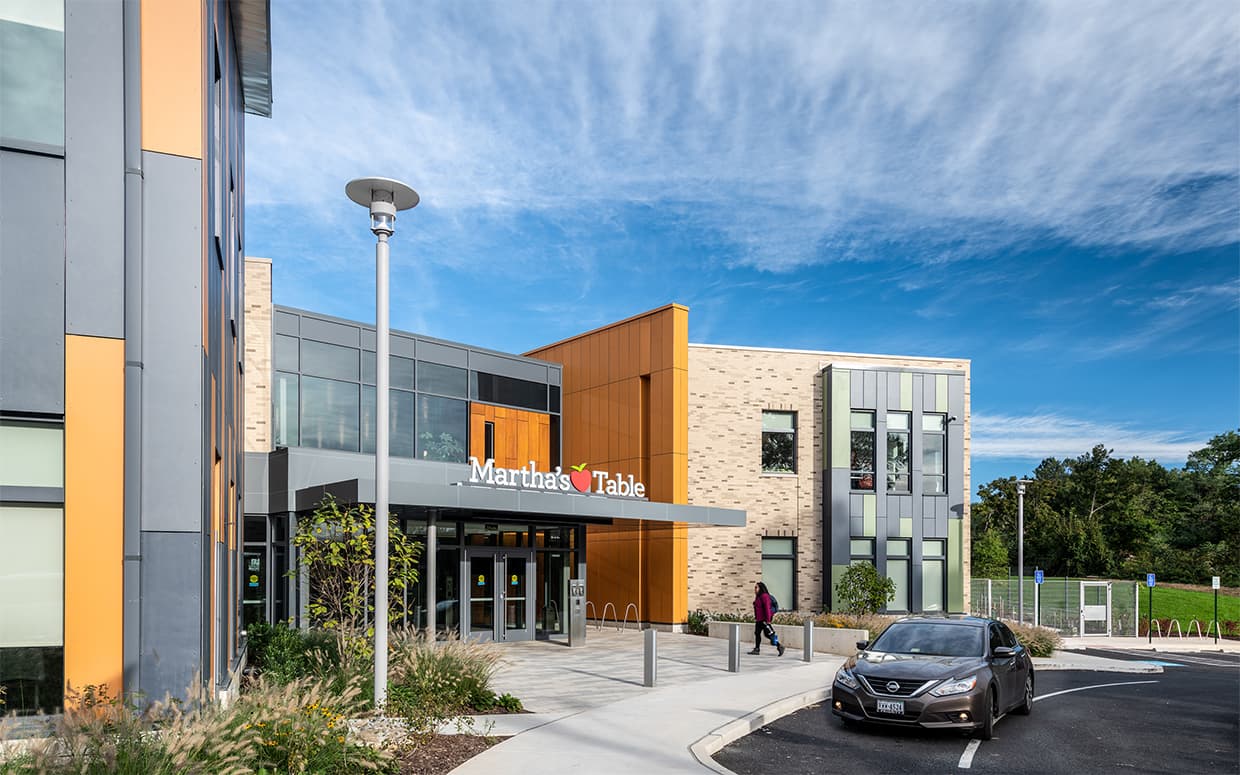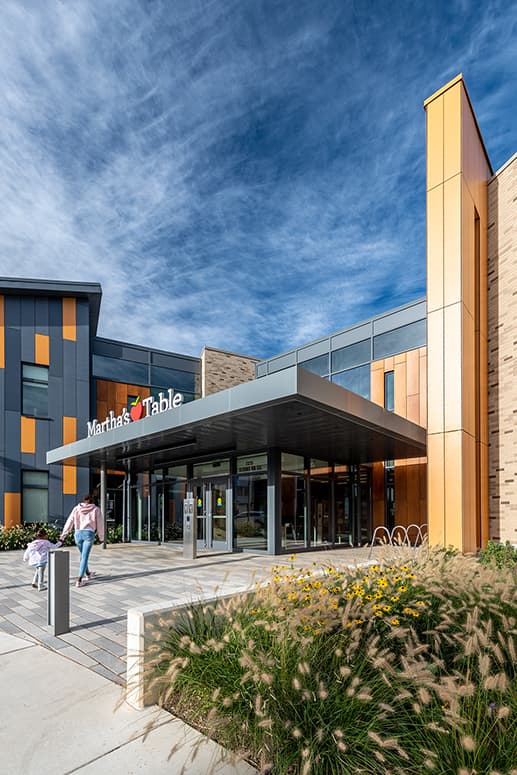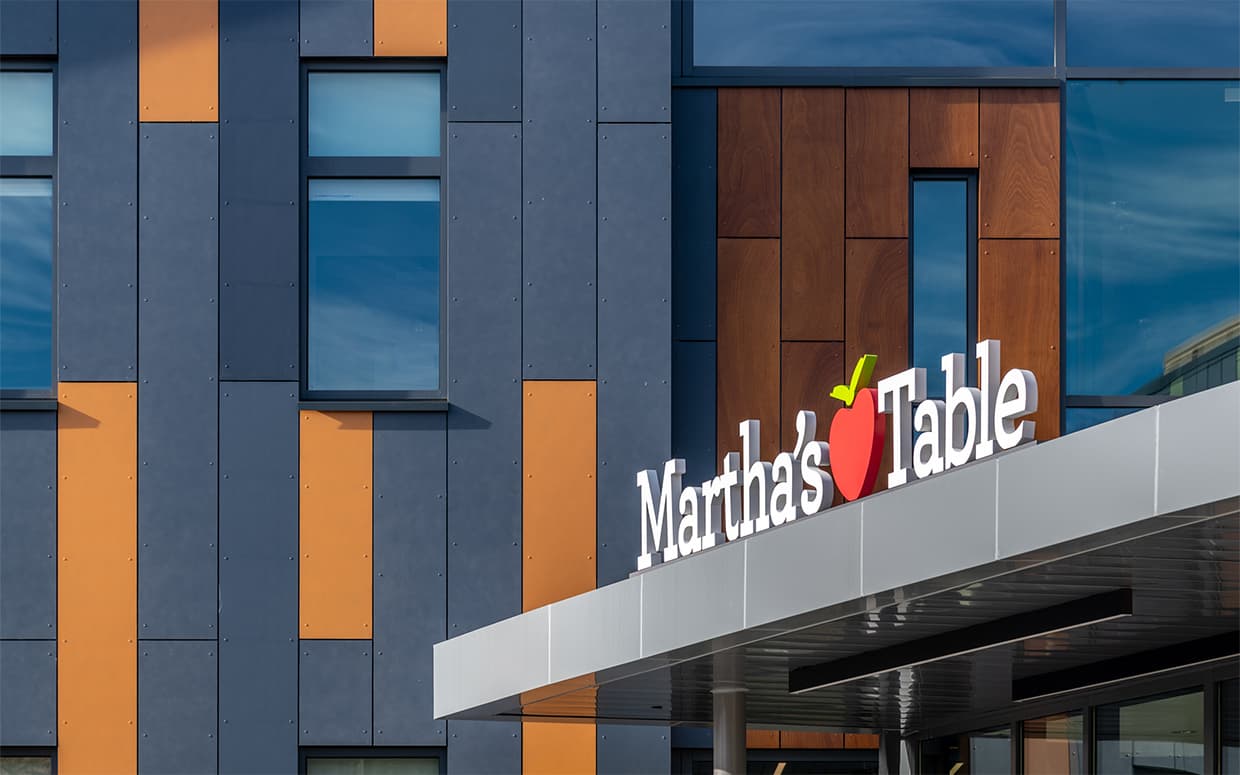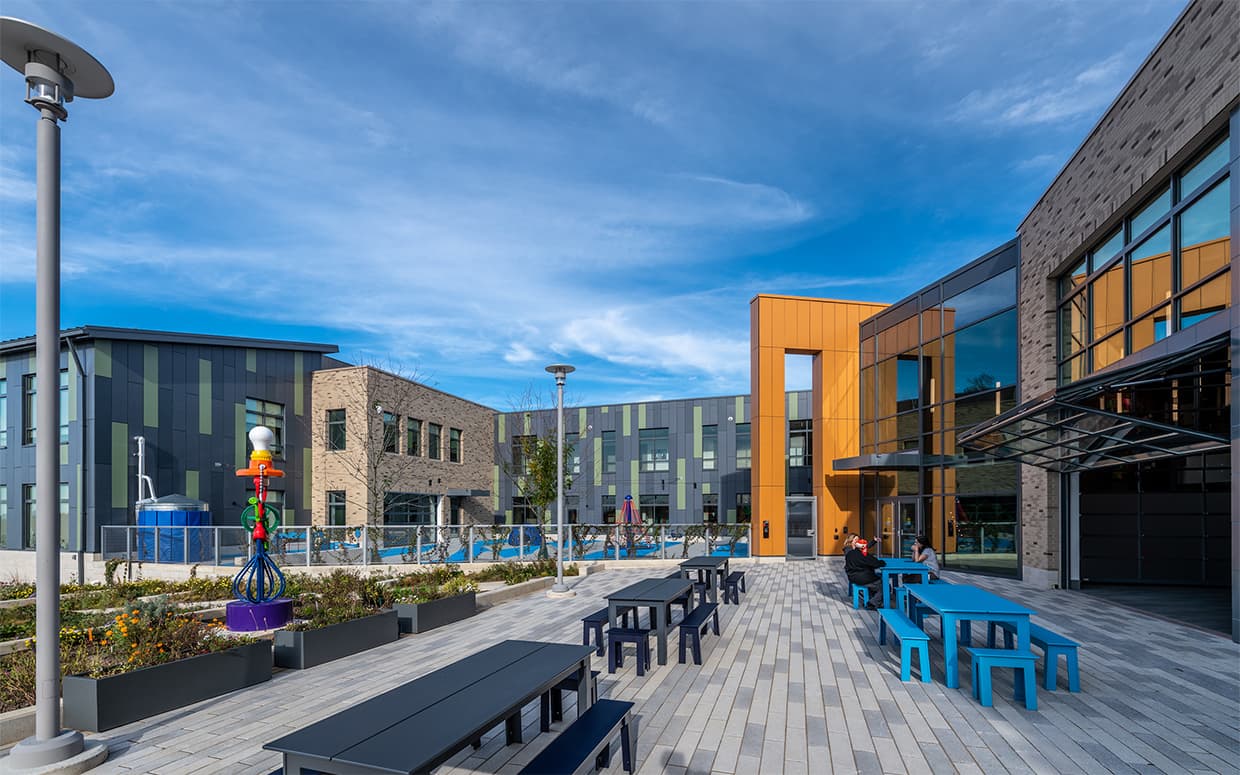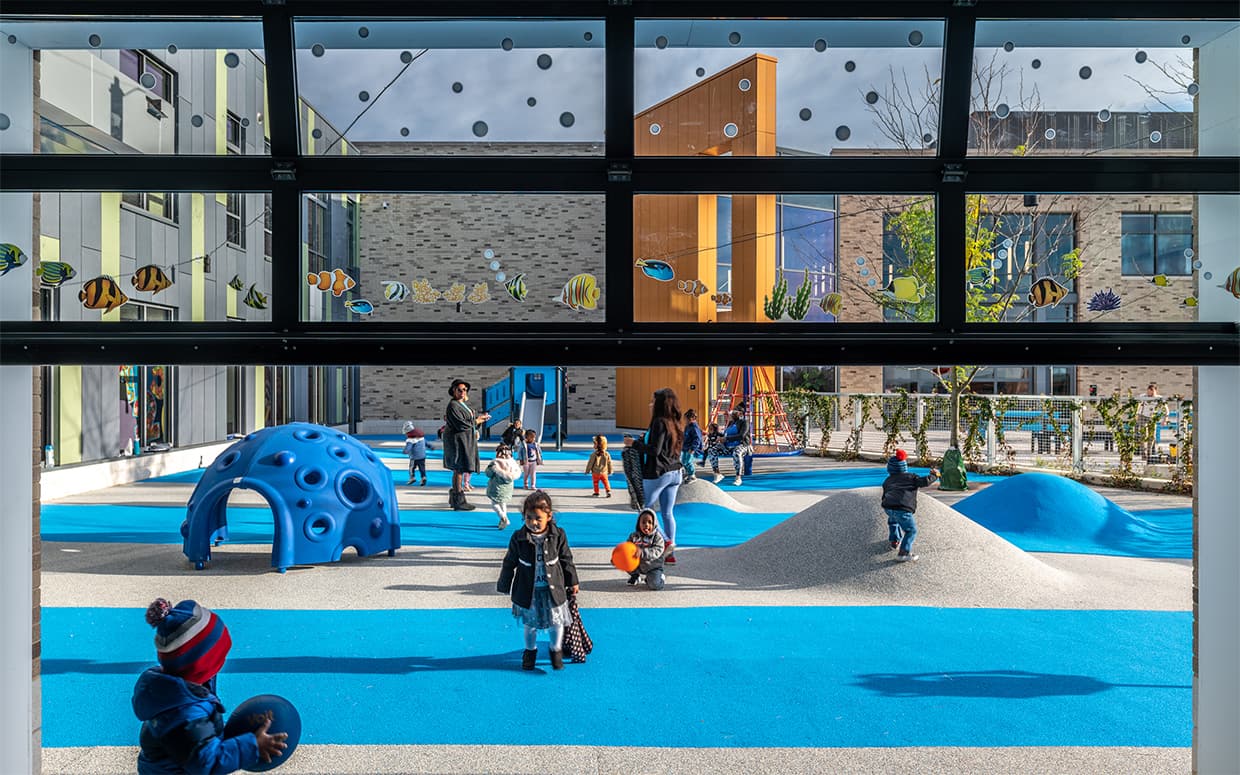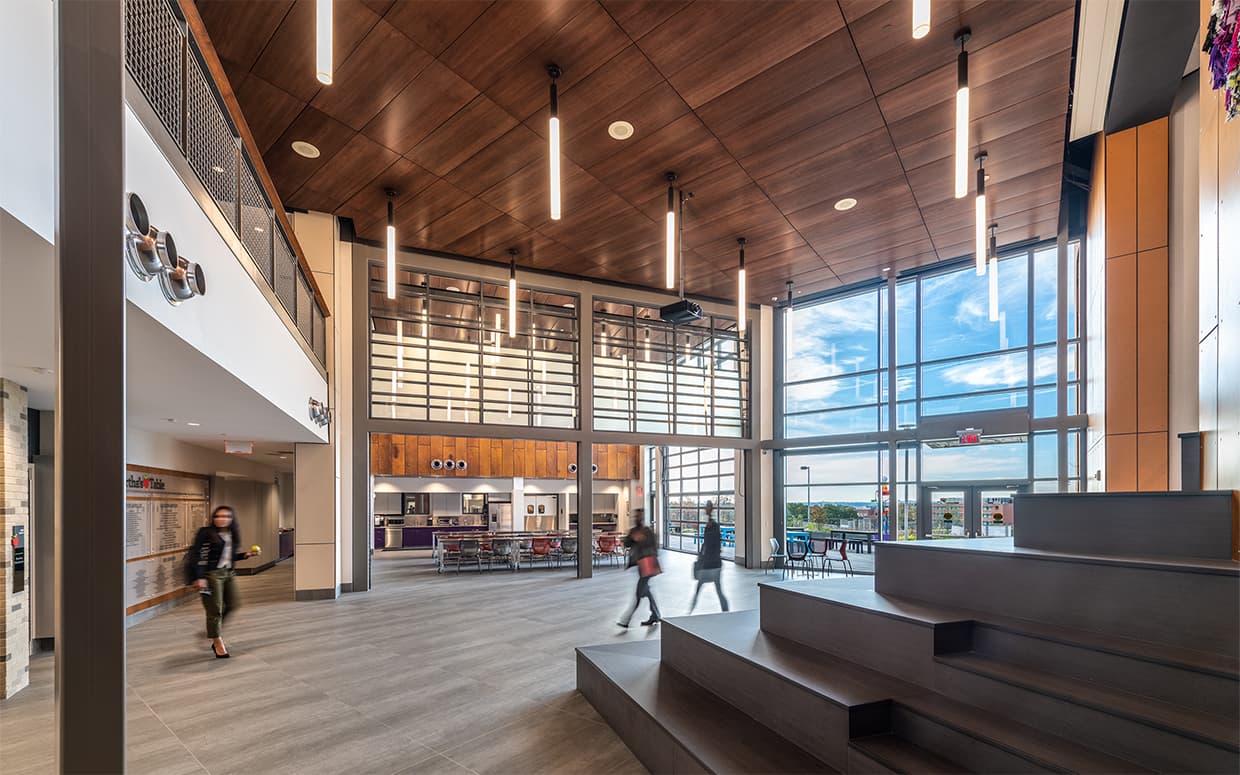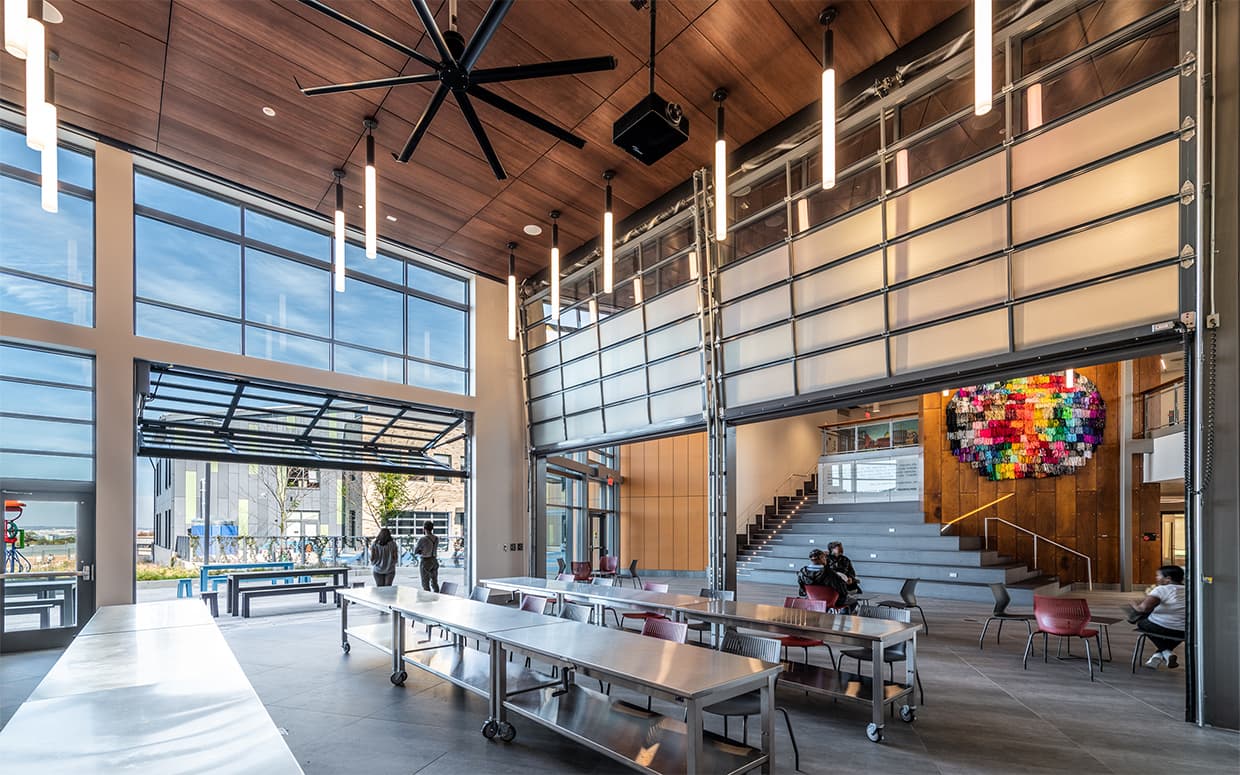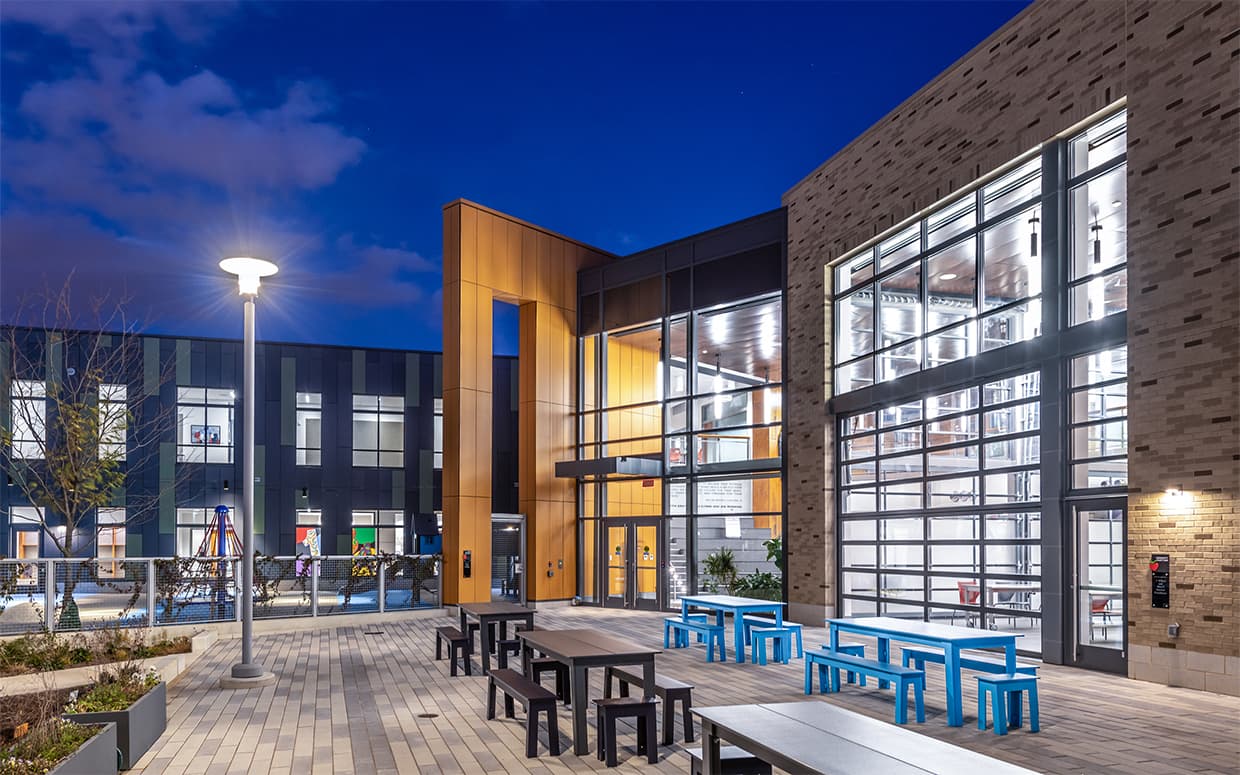Context
The Commons at Stanton Square is a unique collaboration created by the Horning Family Fund who partners with communities to address inequity and improve educational and economic outcomes for children and families in Washington, DC’s underserved Ward 8. In addition to Community of Hope - a non-profit committed to providing resources for mental health, homeless prevention, and healthy pregnancies - the building houses Martha’s Table - an active charity and volunteer center supporting strong children, strong families, and strong communities through access to high-quality education, healthy food, and community support. From inception, the building’s program goals were to manifest Martha’s Table’s mission through initiatives that assist low-income parents by providing quality education focused on literacy, social and behavioral development, health and well-being, and parent engagement.
Solution
The building forms a neighborhood core and serves as a hub for the wide range of community services it provides. Distinct programs are each configured in a manner to operate as “programs within the program” to ensure appropriate security and confidentiality for the clients each serve. The heart of the program is manifest in the “Crossroads”, a central hub around-which all building spaces and program activities flow. Filled with light, color, and texture, it connects the community on all levels with programs such as cooking demonstrations, live music, dance, and activities for neighborhood children. In this regard it lives the concept of the “Third Place”; public places where people gather and interact, allowing users to simply enjoy the company and conversation around them - the heart of a community's social vitality. The neighborhood a child grows-up in is a critical determinant of their future outcomes. A complex web of social, governmental, physical, and economic factors defines their success. In this context, the community impact of the Commons is palpable and measurable. Each day, visitors shop for free, fresh food, teens and adults utilize wellness screening services and neighborhood children stream to classrooms for daylong and after-school care. CGS’s vision and collaborative efforts ensured that the building quickly become deeply embedded in the community and manifest the program’s belief that every child – regardless of zip code – deserves the opportunity for their brightest future and a deeply engaged family and community committed to their success.
